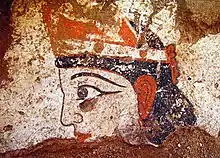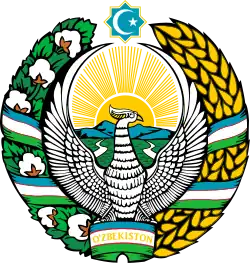Portal:Uzbekistan
The Uzbekistan Portal
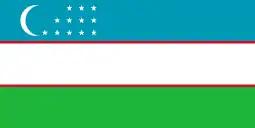
Uzbekistan (UK: /ʊzˌbɛkɪˈstɑːn, ʌz-, -ˈstæn/, US: /ʊzˈbɛkɪstæn, -stɑːn/ ⓘ), officially the Republic of Uzbekistan, is a doubly landlocked country located in Central Asia. It is surrounded by five landlocked countries: Kazakhstan to the north; Kyrgyzstan to the northeast; Tajikistan to the southeast; Afghanistan to the south; and Turkmenistan to the southwest. Its capital and largest city is Tashkent. Uzbekistan is part of the Turkic world, as well as a member of the Organization of Turkic States. Uzbek is the majority language, while Russian is widely spoken and understood. Tajik is also spoken as a minority language, predominantly in Samarkand and Bukhara. Islam is the predominant religion, most Uzbeks being Sunni Muslims.
The first recorded settlers in what is now Uzbekistan were Eastern Iranian nomads, known as Scythians, who founded kingdoms in Khwarazm, Bactria, and Sogdia in the 8th–6th centuries BC, as well as Fergana and Margiana in the 3rd century BC – 6th century AD. The area was incorporated into the Achaemenid Empire and, after a period of Greco-Bactrian rule, was ruled by the Parthian Empire and later by the Sasanian Empire, until the Muslim conquest of Persia in the seventh century. The early Muslim conquests and the subsequent Samanid Empire converted most of the people into adherents of Islam. During this period, cities began to grow rich from the Silk Road, and became a center of the Islamic Golden Age. The local Khwarazmian dynasty was destroyed by the Mongol invasion in the 13th century, leading to a dominance by Turkic peoples. Timur (Tamerlane) in the 14th century established the Timurid Empire. Its capital was Samarkand, which became a centre of science under the rule of Ulugh Beg, giving birth to the Timurid Renaissance. The territories of the Timurid dynasty were conquered by Uzbek Shaybanids in the 16th century. Conquests by Emperor Babur towards the east led to the foundation of the Mughal Empire in India. All of Central Asia was gradually incorporated into the Russian Empire during the 19th century, with Tashkent becoming the political center of Russian Turkestan. In 1924, national delimitation created the Uzbek Soviet Socialist Republic as a republic of the Soviet Union. It declared independence as the Republic of Uzbekistan in 1991. (Full article...)
Selected article -
Itchan Kala (Uzbek: Ichan-Qаl’а) is the walled inner town of the city of Khiva, Uzbekistan. Since 1990, it has been protected as a World Heritage Site.
The old town retains more than 50 historic monuments and 250 old houses, dating primarily from the eighteenth or nineteenth centuries. Juma Mosque, for instance, was established in the tenth century and rebuilt from 1788 to 1789, although its celebrated hypostyle hall still retains 112 columns taken from ancient structures. (Full article...)Did you know...
No recent additions
In the news
General images -
Topics
Categories
Related portals
Religions in Uzbekistan
Post Soviet states
Other countries
WikiProjects
- Wikipedia:WikiProject Uzbekistan
Things to do
 |
Here are some tasks awaiting attention:
|
- –When a task is completed, please remove it from the list.
Associated Wikimedia
The following Wikimedia Foundation sister projects provide more on this subject:
-
 Commons
Commons
Free media repository -
 Wikibooks
Wikibooks
Free textbooks and manuals -
 Wikidata
Wikidata
Free knowledge base -
 Wikinews
Wikinews
Free-content news -
 Wikiquote
Wikiquote
Collection of quotations -
 Wikisource
Wikisource
Free-content library -
 Wikiversity
Wikiversity
Free learning tools -
 Wikivoyage
Wikivoyage
Free travel guide -
 Wiktionary
Wiktionary
Dictionary and thesaurus
-
 List of all portalsList of all portals
List of all portalsList of all portals -
 The arts portal
The arts portal -
 Biography portal
Biography portal -
 Current events portal
Current events portal -
 Geography portal
Geography portal -
 History portal
History portal -
 Mathematics portal
Mathematics portal -
 Science portal
Science portal -
 Society portal
Society portal -
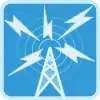 Technology portal
Technology portal -
 Random portalRandom portal
Random portalRandom portal -
 WikiProject PortalsWikiProject Portals
WikiProject PortalsWikiProject Portals

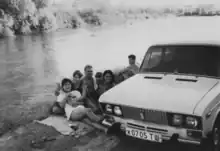
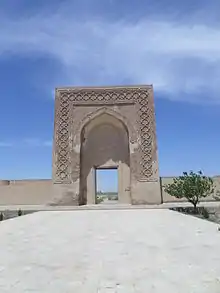


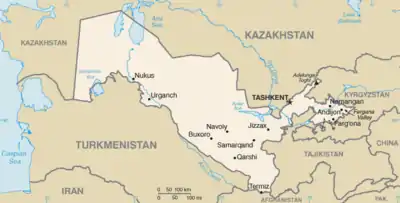
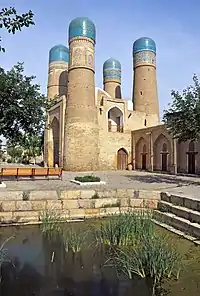
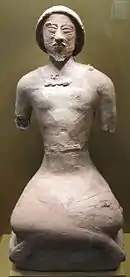

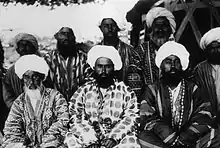

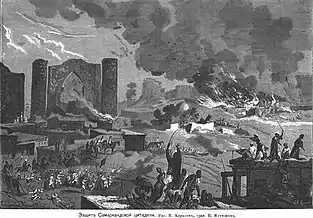


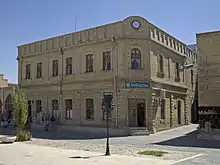

.png.webp)
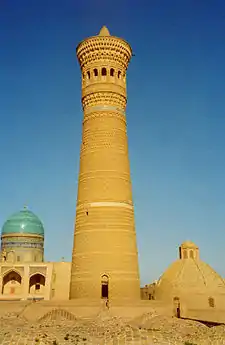
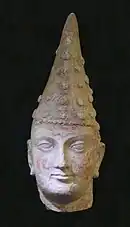
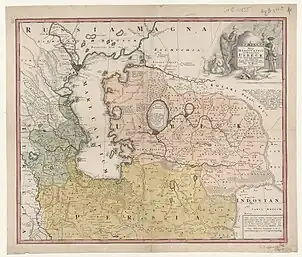
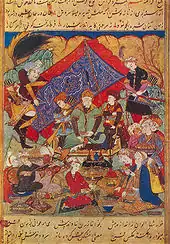

.jpg.webp)
